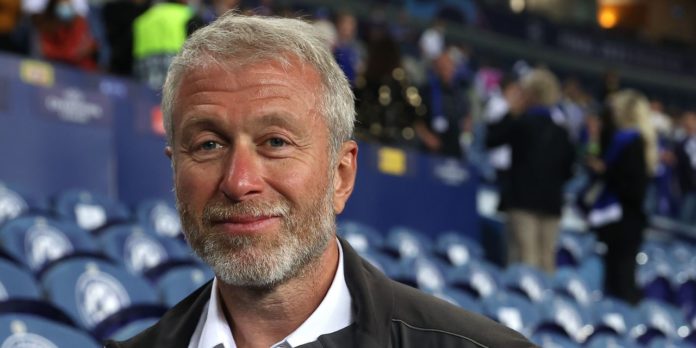A number of U.S. hedge-fund firms that have investments from Russian oligarch
Roman Abramovich
have been told to freeze his assets after he was sanctioned by the British government Thursday, according to people familiar with the instructions.
A message from fund administrator
Globe Op to one firm said, “Currently accounts attributed to Roman Abramovich are blocked from transacting, as such any distributions, redemptions or payment cannot be made and no subscriptions or contributions can be accepted.”
SS&C, whose clients include hedge funds and other investment managers, said in the message it was monitoring the situation for guidance from the U.K. Treasury, the Office of Financial Sanctions Implementation and the Cayman Islands Monetary Authority. Other funds have received similar messages, according to people familiar with the matter.
The guidance likely puts a stop to recent efforts by Mr. Abramovich to sell his interests in a slew of hedge funds, said people familiar with the matter.
Mr. Abramovich, who for years has accessed hedge-fund investments through New York-based adviser Concord Management, had been trying to sell interests in funds including those managed by Empyrean Capital Partners in Los Angeles and Millstreet Capital Management in Boston, the people said.
Mr. Abramovich had been seeking to sell the funds on the secondary market since at least late February, the people said. For at least some of the funds, the investor is Concord, with Mr. Abramovich or entities connected with him being the underlying investor, said people familiar with the matter. People familiar with the matter said Concord was a small investor in Millstreet.
Mr. Abramovich also is invested through Concord in hedge funds including Millennium Management, Sarissa Capital Management and
formerly known as Och-Ziff Capital Management, said people familiar with the matter. It couldn’t be determined Friday if he had tried to sell his interests in those funds as well. Mr. Abramovich’s hedge-fund portfolio includes investments in many small funds betting on and against stocks, one person briefed on the matter said.
A spokeswoman for Mr. Abramovich didn’t respond to requests for comment. Concord didn’t respond to a request for comment.
earlier reported Mr. Abramovich’s ties to Concord.
The U.K. on Thursday froze Mr. Abramovich’s assets and prevented him from doing any business in the country or selling assets including soccer club Chelsea F.C.
While managers in the past welcomed Concord’s money—the firm has a reputation for being a thoughtful, long-term investor in the hedge-fund industry–the relationship is proving delicate following Russia’s invasion of Ukraine and the cascade of sanctions it triggered.
Managers would have welcomed a sale as a way to distance themselves from a sanctioned oligarch, and some had been thinking about forcibly redeeming Mr. Abramovich from their funds, said people familiar with the matter.
One manager had been considering the possibility of replacing Mr. Abramovich with other investors, another person familiar with the matter said.
Conversations with asset managers regarding their possible exposure to Russian clients have been multifaceted, said Ropes & Gray LLP partner Ama Adams, who heads the firm’s international trade and national security practice. They have covered for example whether firms wish to forcibly redeem investors even if they haven’t been sanctioned, what steps they need to take to freeze assets in the case of investors who have been sanctioned, and what information they can share with other clients who are asking about their Russian exposure.
“Over the past 14 to 20 days, we have seen a global, coordinated effort across multiple regimes” designating Russian oligarchs and others as sanctioned persons, Ms. Adams said. “That creates more of a complicated assessment than historically many managers have had to consider due to the global nature of funds.”
She said past sanctions that were comprehensive, such as those against countries including Iran, Syria or North Korea, had much less of an impact on asset managers because of the lack of investors from those jurisdictions.
Write to Juliet Chung at juliet.chung@wsj.com
Copyright ©2022 Dow Jones & Company, Inc. All Rights Reserved. 87990cbe856818d5eddac44c7b1cdeb8
Source link






